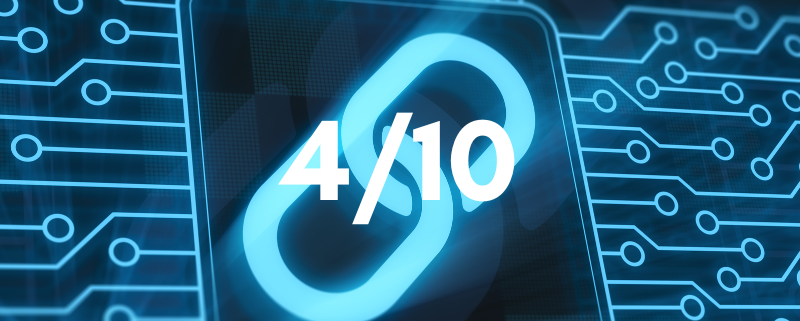What are smart contracts and how will they affect payroll and HR? Blockchain Article 4/10
This is article 4 of 10 forming the fourth part of a series of articles dedicated to my attempt at helping Payroll & HR professionals understand the potential impact that Blockchain and Cryptocurrency could have on the future of Payroll & HR.
To view the earlier articles in the series – click here:
2. Article 2: Will companies start to payroll its employees in cryptocurrency?
3. Article 3: How will blockchain affect HR Recruitment Processes?
Also, check out episode 09 of The Payroll Podcast with Anita Lettink, SVP of Global Alliances at NGA HR which discusses ‘Blockchain and the Future of Payroll & HR’ in considerable detail if you wish to fast-track your learning. You can subscribe to the Payroll Podcast here: Apple Podcasts
Today, I would like to help you understand what a “Smart Contract” is in relation to blockchain technology and how these are likely to affect payroll and HR processes.
What are smart contracts and how will they affect payroll and HR?
Before I explain what a smart contact is, the reason we are likely to encounter them in the future is because they could be used to payroll employees in a way that is near-instant. Smart contracts could streamline existing payroll and HR functions significantly, thereby saving businesses considerable money on its back-office function expenditure.
Smart contracts, in theory, could be used by payroll departments to pay contractors and freelancers who only interact with companies on an infrequent basis to complete specific portions of work.
More pertinently, is the fact that they are already being used on the Ethereum blockchain, which is the second-largest public blockchain in the world.
So what are they, how do they work and why are the relevant to payroll and HR?
A smart contract is a set of promises written out in code which works by using statements like: ‘If This, Then That’ (IFTTT). Once set in motion, it is designed to be entirely dependent on its code and irreversible.
Let’s imagine then, a smart contract between our company and a contractor.
When a certain number of hours of work have been completed (If This), our smart contract automatically pays our contractor (Then That) by deploying this piece of remotely executable code, which is linked to an instruction from our company bank account to the contractor’s bank account.
We wouldn’t need to contact our bank on a monthly payment run, along with all the payroll processing time that entails; instead, we just deal direct with one another, with the smart contract as a guarantee that work is completed.
While banks are investigating the use of smart contracts, they’re not so keen just yet to use public blockchains like Ethereum to link accounts together because of both privacy and security concerns.
Not many companies would be happy for all their transactions to be publicly available to anyone who wanted to view them, but this is possible on Ethereum.
Still, there are some up-and-coming pilot programs in development.
Because Ethereum is a public, open source blockchain, any person or company can view the source code and copy it to develop their own blockchain system.
JP Morgan has done this with their Quorum application, which itself is open source [https://uk.reuters.com/article/us-blockchain-jpmorgan/jpmorgan-mulls-spin-off-of-blockchain-project-quorum-sources] and could be built upon or modified by other parties.
We know that freelancers and contractors face horrendous difficulties getting swift payments for their work, and delayed payments can put fledgling businesses in serious difficulties.
JP Morgan’s Quorum platform is an upgraded version of Ethereum and is being trialled to offer faster royalty payments to the thousands of independent game developers working on Microsoft’s Xbox games.
Currently, payments are slow and laborious, taking up to 45 days to be agreed and arrive. Quorum promises daily payments triggered by smart contracts.
Smart Contract Risks
As we mention above, smart contracts are in theory a sound application of blockchain technology. But there are risks to consider.
In order to function as it was intended, the code behind a smart contract must be perfect.
All software, including professional, enterprise-grade software, contains bugs. Only a very tiny proportion of code is technically perfect.
Developer Steven McConnell writes in his seminal book Code Complete [https://www.amazon.com/Code-Complete-Practical-Handbook-Construction/dp/0735619670] that the industry average is around 15 to 50 errors per 1000 lines of code.
In its code released to the general public, Microsoft manages errors at the lower level, at about 10-20 bugs per 1000 lines.
The only people producing code with no errors at all are software developers at NASA working on the space shuttle, writes McConnell, “who achieved a level of zero defects (bugs) in 500,000 lines of code.”
Smart contract payments are irreversible, so there is no way that a company could get its money back if a bug like this were exploited.
In 2017, nearly $55 million-worth of Ethereum’s cryptocurrency Ether was stolen because a still-unknown hacker exploited that bug in the source code.
The bug allowed a payment receiver to request payment multiple times, getting away with repeat payments before the blockchain system had a chance to update itself.
Covering this story, Bloomberg’s Matthew Leising reported [https://www.bloomberg.com/features/2017-the-ether-thief/] how unforgiving tiny errors really are.
He writes: “The order of commands [in this piece of code] allowed cryptotoken holders to withdraw any profits made on their investments….Instead, it became one of the biggest backdoors in hacking history…If the capital T inline 666 had been a small t, that would have prevented the hack.”
For security’s sake, hosting smart contracts on our in-house private blockchains, instead of in the public Ethereum blockchain, could be the future for smart contracts in business.
But private blockchains ultimately have one major flaw.
If only a handful of people are allowed to update transactions on a private blockchain, they become single points of failure and an easy target for hackers, who could gain control of an entire blockchain by attacking only a small number of computers.
If your payroll department looks after the blockchain, any hardware failure or file corruption would be extremely serious – because there is not a backup network of computers also updating the correct copy of the blockchain.
Conclusion
Ethereum, which launched in 2015, can process transactions at a much speedier rate than its older cousin Bitcoin.
Scalability is a significant issue for Bitcoin, as the more blocks of transactions are added to the chain, the longer it takes to verify transactions. It takes around 10 minutes to update the Bitcoin blockchain. With Ethereum, it takes approximately 12 seconds.
Still, 12 seconds is a very long time compared to modern databases, which store and process information in milliseconds.
Smart contracts may well be the future of contract payments for payroll operations of the future, and these early forms of private blockchain could be used to streamline payments and processes. But there are few tangible products for businesses to adopt as of yet.
It is likely that private companies will continue to develop private blockchains for smart contract development.
However, pilot projects are still at an early stage and will not reach smaller businesses or mainstream adoption for some years.
What do you think? Please share and comment – I will try to interact with as many as possible!
Future articles in the series will include:
- What benefits could blockchain bring to the payroll industry?
- Blockchain payroll companies
- How to build a blockchain-based payroll system
- When should businesses start planning for blockchain?
- Risks and costs
- Conclusion – is blockchain and crypto the future?
Thanks!
As always, whether you love payroll or love HR, love what you do, work smart and work hard – just be careful not to overdo it.
This article was written by Nick Day, CEO of JGA Recruitment – the leading Payroll, HR & Reward Recruitment Specialists.
Nick Day | CEO
JGA Recruitment Group
Payroll, HR & Reward Specialist Recruiters
Email: [email protected]
Tel: 01727 800 377




